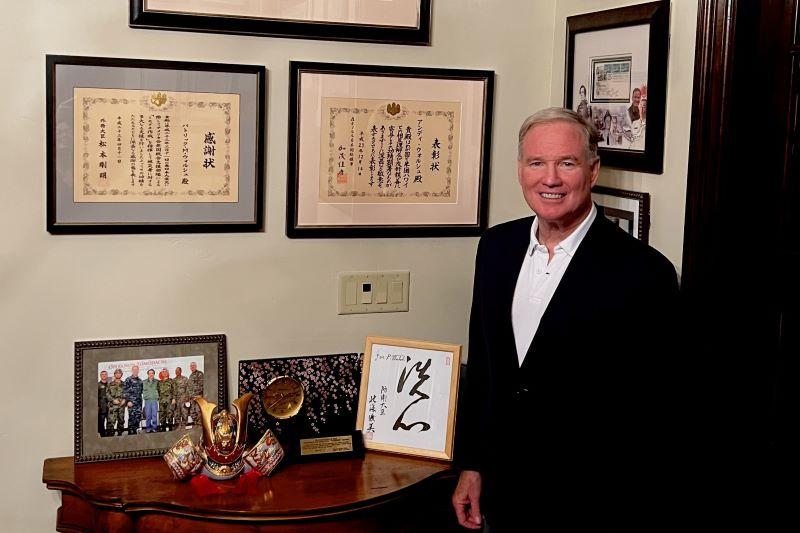-

Hear from Monica Toft, Academic Dean
Learn how Monica Toft, Academic Dean, is shaping the study of global affairs and diplomacy at Fletcher.
Hear from Prof. Toft -

Explore Fletcher academics in action
Fletcher Features offers insights, innovation, stories and expertise by scholars.
Get global insights -
Get application tips right from the source
Learn tips, tricks, and behind-the-scenes insights on applying to Fletcher from our admissions counselors.
Hear from Admissions -

Research that the world is talking about
Stay up to date on the latest research, innovation, and thought leadership from our newsroom.
Stay informed -
Meet Fletcherites and their stories
Get to know our vibrant community through news stories highlighting faculty, students, and alumni.
Meet Fletcherites -

Forge your future after Fletcher
Watch to see how Fletcher prepares global thinkers for success across industries.
See the impact -

Global insights and expertise, on demand.
Need a global affairs expert for a timely and insightful take? Fletcher faculty are available for media inquiries.
Get in Touch
An Alternative Construct for Solutions
Four-Star Admiral Patrick Walsh reflects on Operation Tomodachi, U.S.-Japan relationship, and Fletcher experience

Patrick Walsh F93 FG99, United States Navy Four-Star Admiral, sees remarkable contrast between his military experience and the one he had as a student at The Fletcher School. During a recent celebration for Fletcher’s 90th anniversary in Tokyo, he reminisced on his time in Medford.
“I was on campus for my dissertation defense, and the following day I was trying to land an F-14,” said Walsh.
He first learned about Fletcher while serving in the U.S. Navy. During a White House Fellowship, when he was working in the Office of Management and Budget and sitting in on public hearings, he realized how important it was for him to develop the discipline required by higher education. Walsh came to Fletcher through a program with the Goldwater-Nichols Department of Defense Reorganization Act of 1986, which provided opportunities for service members to study in civilian institutions. He completed his MALD while active duty and continued his studies through the PhD program.
While toggling between his education and military service may have engaged different parts of his mind, the twining of these two experiences proved foundational, fundamentally transforming his approach to service.
Japan-U.S. Partnership: A Case Study
In the wake of the March 2011 Great East Japan Earthquake, subsequent tsunami, and nuclear disaster, Walsh directed the U.S. response, Operation Tomodachi. Quickly, he recognized that his team would need the best solutions the world could offer.
“In my nearly 35 years of service in operations and deployments around the world, I had never experienced anything close to what we witnessed in the days that followed the Great Eastern Japan Earthquake,” said Walsh.
Walsh found that the openness with which he approached his studies at Fletcher proved mission-critical in Japan.
Under Operation Tomodachi, the USS Ronald Reagan strike group joined forces with numerous government ministries, agencies, and troops in a unified effort to provide relief to the people and communities affected by the triple disasters.
“The complexity and scope of the humanitarian and radiological challenge required innovative solutions, so we organized our work for unity of effort and established a Joint Support Force,” said Walsh. “We needed integrative solutions among the multiple services, ministries, agencies, and organizations.”
Operation Tomodachi played a significant role in redefining the relationship between the U.S. and Japan. The Japan Times reported, “a day of tragedy can now also be seen as one that set in motion a broad and important shift for the Self-Defense Forces and the country’s alliance with the United States.”
“I saw that to be an impactful contributor, it took the kind of discipline carried and represented inside the PhD program,” Walsh said.
Challenging Status Quo Thinking
For Walsh, the intellectual rigor and curiosity he developed in the PhD program provided him with the outlook needed to lead Operation Tomodachi.
“What I took from Fletcher was the importance of questions,” he said. “Rather than trying to just reach back in history and find the answer, there was a practical implication with the whole program that forced you to be adept on your feet.”
During his keynote address in Tokyo, Walsh enumerated the values of graduate education and research.
“By design, the exercise challenges conventional thinking and practice,” he said. “The exercise generates confidence for the student to think independently and critically by the weight of their argument and the contribution they made to the academy.”
“We had the benefit of independent, critical thinkers representing every discipline involved in our humanitarian assistance, disaster relief, and consequence management mission in Japan,” he added. “If the investment continues in graduate education, we will continue to have critical thinkers in the future force who will have the background and skills to land on their feet in crises and create solutions to problems that no one had ever imagined.”
Read more about Fletcher’s international security field of study and the school’s 90th anniversary.

